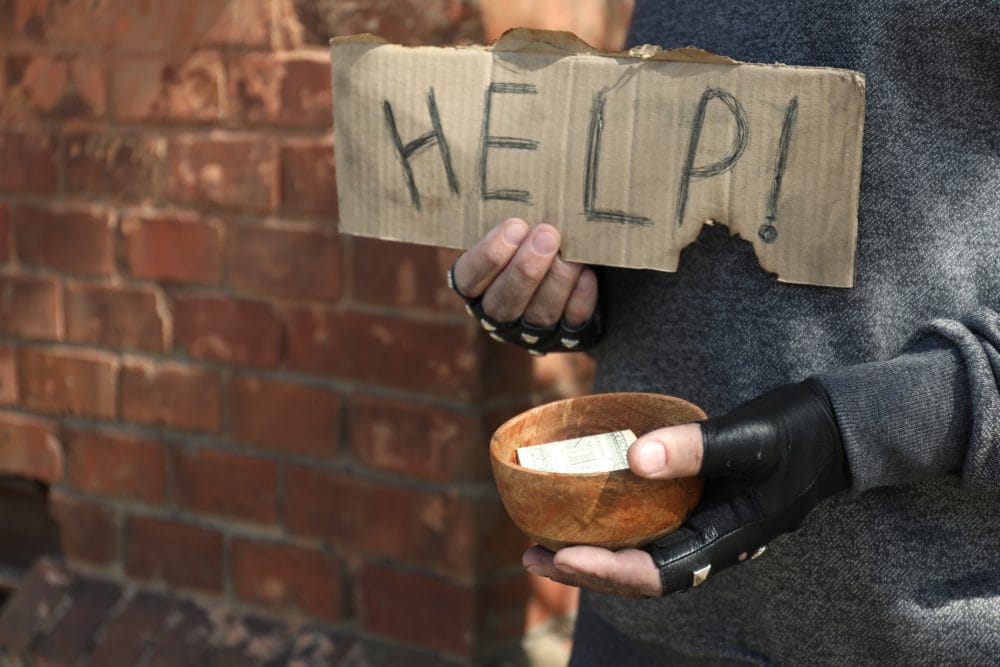Poverty doesn’t always wear a label. It often hides behind closed doors, in quiet compromises, skipped meals, or unpaid bills. Many people facing financial hardship work long hours, take on multiple jobs, and still struggle to make ends meet.
Despite how common it is, being poor often brings an invisible weight of shame. That shame can make reaching out for help feel like a personal failure rather than a practical necessity.
The Myth of Self-Reliance
Society tends to glorify self-sufficiency, holding it up as the gold standard of adulthood and success. From a young age, people are taught that hard work alone will lead to prosperity, leaving little room to admit when help is needed. This cultural myth suggests that asking for assistance is an admission of weakness or laziness. It conveniently ignores the structural inequalities that make upward mobility so difficult for so many. In reality, no one thrives entirely on their own, yet the myth persists and deepens the taboo.
When Needing Help Becomes a Character Judgment
There’s a harsh double standard in how society views people in need. When a wealthy person faces financial setbacks, they’re seen as temporarily unlucky; when a poor person struggles, they’re labeled irresponsible. This stigma isn’t just unfair—it’s dangerous. It leads people to suffer in silence rather than face judgment or ridicule. Instead of being offered compassion, those in need are too often met with suspicion or condescension.
Pride, Fear, and the Cost of Vulnerability
For many, asking for help isn’t just difficult—it feels humiliating. Pride, built from years of trying to stay afloat alone, clashes with the vulnerability of admitting things are falling apart. There’s also a deep fear that asking for help will change how others see them, reducing them to their current financial situation. This fear keeps people from reaching out even when they are at their most desperate. Sadly, silence can cost more than hardship—it can cost lives.
Social Media’s Role in the Shame Spiral
Online platforms often amplify the problem by projecting unrealistic versions of success. While people post curated snapshots of vacations, new purchases, and lifestyle wins, those struggling financially are left feeling even more isolated. The pressure to “keep up” digitally can be intense, even when real life is falling apart behind the scenes. In this environment, asking for help doesn’t just feel taboo—it feels like breaking an unspoken social code. The digital world can make poverty feel like a personal embarrassment rather than a shared human experience.
Broken Systems, Not Broken People
One of the most harmful beliefs surrounding poverty is that it’s the result of personal failure. In truth, many people are poor because systems fail them—through unaffordable housing, predatory lending, inaccessible healthcare, and jobs that don’t pay a living wage. Yet the narrative too often shifts blame to individuals instead of demanding reform from the institutions that trap people in cycles of hardship. This misdirection protects the powerful and keeps the vulnerable from seeking support. Until the system is held accountable, the shame of poverty will continue to fall unfairly on those with the least.
Why Resources Remain Unused
Countless programs exist to provide support—food banks, housing assistance, community grants—but many who qualify don’t use them. The fear of being judged, denied, or treated poorly often outweighs the potential benefits. Some people simply don’t know what help is available, while others have had bad experiences that discourage them from trying again. The process of getting aid can also be filled with red tape and bureaucratic hurdles, making it feel like an uphill battle. In the end, those who need help the most are left navigating a maze with little guidance or encouragement.
The Power of Community Over Judgment
True support begins with empathy. When communities choose to uplift rather than judge, the walls of shame begin to crack. Listening without offering unsolicited advice, validating someone’s experience, and showing up without conditions can change everything. A culture that values collective care over competition allows more people to feel safe asking for what they need. Only when people stop seeing poverty as a moral failing can real connection and healing take place.
Reframing Help as Strength
It takes courage to ask for help—more than most people realize. Acknowledging struggle and seeking support is not a sign of weakness but of resilience and clarity. Those who dare to speak up about their needs are actively fighting against the stigma that says they should stay silent. In a healthier society, asking for help would be celebrated, not shamed. Until then, the brave act of seeking support deserves far more respect than it currently receives.
Moving Toward Compassion
Changing the narrative around poverty begins with changing the way people think about it. That means challenging old beliefs, listening to real stories, and showing compassion in everyday interactions. Small shifts in attitude—choosing kindness over criticism, listening over lecturing—can ripple outward into larger societal change. Everyone benefits when people feel safe and supported, not scorned. And ultimately, creating a more humane world starts with seeing help not as a burden, but as a bridge.
What do you think? Has asking for help ever felt taboo to you or someone you know? Share your thoughts in the comments and join the conversation. Let’s keep challenging the shame and building understanding—together.
Read More
10 Items Poor People Will Still Buy Even When Rent Is Due
12 Reasons The Wealthy Aren’t Giving Money To The Poor








